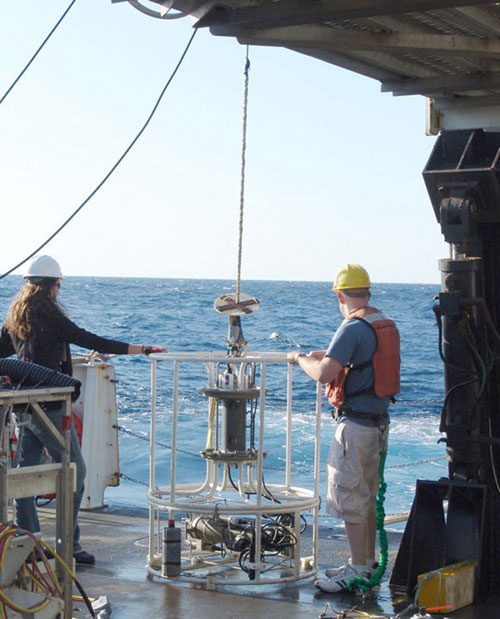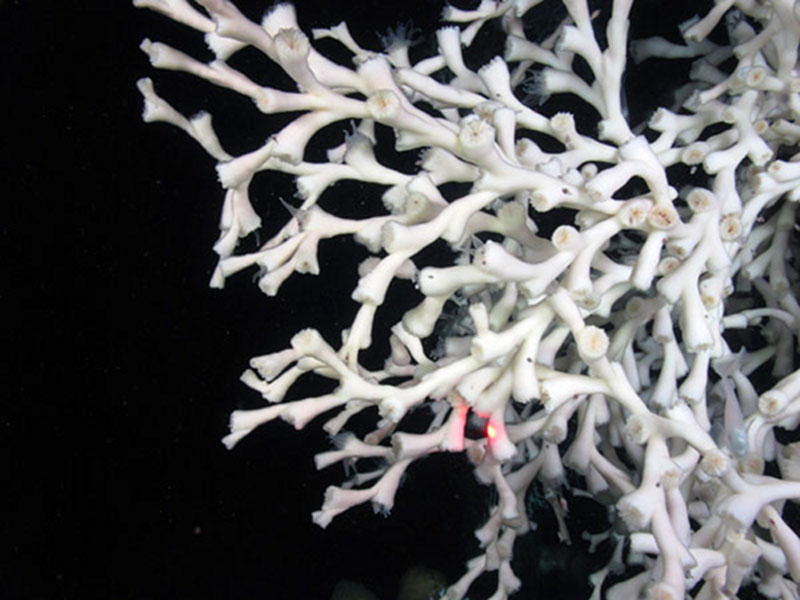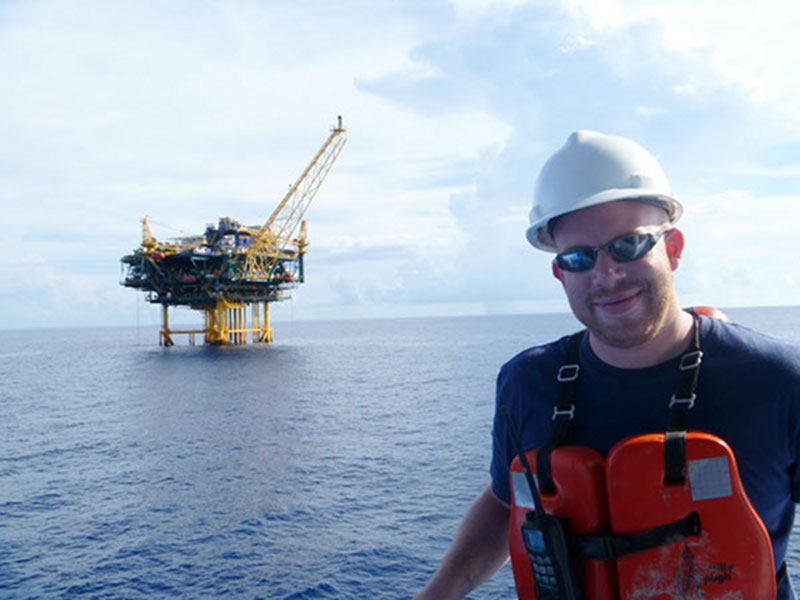
By Jay Lunden, Chief Scientist - Temple University
July 22, 2012

In 2008, Jay got his sea legs by helping launch the CTD device on the Lophelia II 2008 expedition in the Gulf of Mexico. Image courtesy of Lophelia II 2012 Expedition, NOAA-OER/BOEM. Download larger version (jpg, 292 KB).
Let me open with a somewhat shocking statement – I never aspired to be a marine biologist. To me, it was a field far removed from anything a kid growing up in suburban Philadelphia could pursue. Yes, I was always interested in science, especially biology, but always figured I’d become a doctor, or teacher, or maybe even (as unbelievable as this sounds) a bank manager. To put it simply, marine biology was never on my radar as a potential career.
Then I started grad school, and in my first year of my program I met Erik Cordes, a deep-sea ecologist and prospective faculty member in Temple University’s Biology Department. I attended Erik’s research seminar as part of his interview and became absolutely enthralled with his work and the dozens of biological questions he posed as pillars of his research program. I was hooked, and I figured – let me see how I can become a part of this.

During the Lophelia II 2012 expedition, Jay guided the scientists in the search for deepwater corals on oil and gas platforms, such as this Lophelia imaged on the Zinc subsea installation in the Gulf of Mexico. Image courtesy of Lophelia II 2012 Expedition, NOAA-OER/BOEM. Download larger version (jpg, 759 KB).
Fast forward to the present, after four years of Lophelia II, seven cruises, presentations at four international conferences, and a transition from the M.S. to Ph.D. program at Temple. I’ve had a perspective change – marine biology has become my career, my hobby, and my life.
My first day as a “marine biologist” was in September 2008, when I left my comfort zone in Philadelphia and flew to Gulfport, Mississippi, for the first Lophelia II cruise. I had absolutely no idea what I was doing. My emotions were somewhat of a rollercoaster, oscillating between excitement for being at sea and making new discoveries, to utter fright that I would be unable to handle the challenges of adapting to life at sea and contributing to a major research program. That trip cemented my fascination with marine science, particularly deep-sea biology. I started crafting my ideas for my dissertation on that cruise and used the next three cruises of Lophelia II to collect the necessary data I would need to tell my story.

As chief scientist, Jay oversaw science operations to investigate deepwater corals on oil and gas platforms during the Lophelia II 2012 expedition in the Gulf of Mexico. Image courtesy of Lophelia II 2012 Expedition, NOAA-OER/BOEM. Download larger version (jpg, 816 KB).
On this cruise, the fifth and final of the Lophelia II project, I’ve had another change in perspective. Being chief scientist requires a shift in thinking, especially as a grad student. On prior cruises, my thinking was focused entirely on my project and how I could accomplish the numerous goals I set for myself as part of my thesis. Now, as chief scientist, I have to consider the success of the dozen other projects running in tandem with mine in order to accomplish the broad goals of Lophelia II. Sometimes this means putting my sampling needs behind other more critical needs on a particular dive.